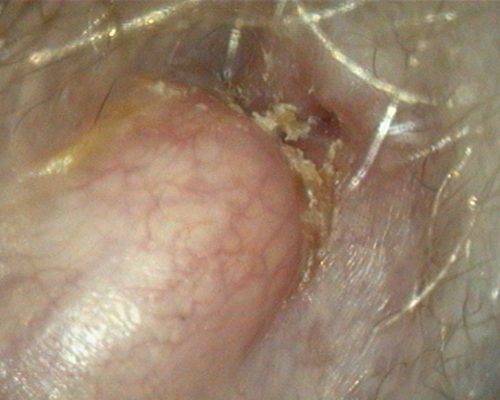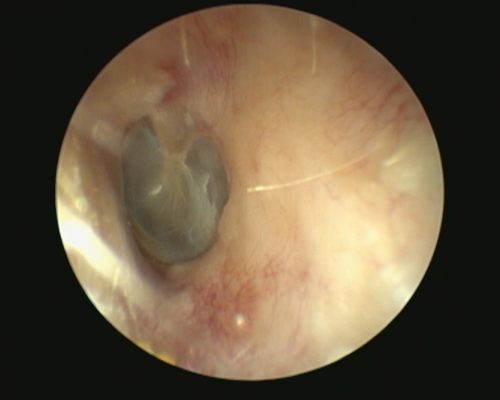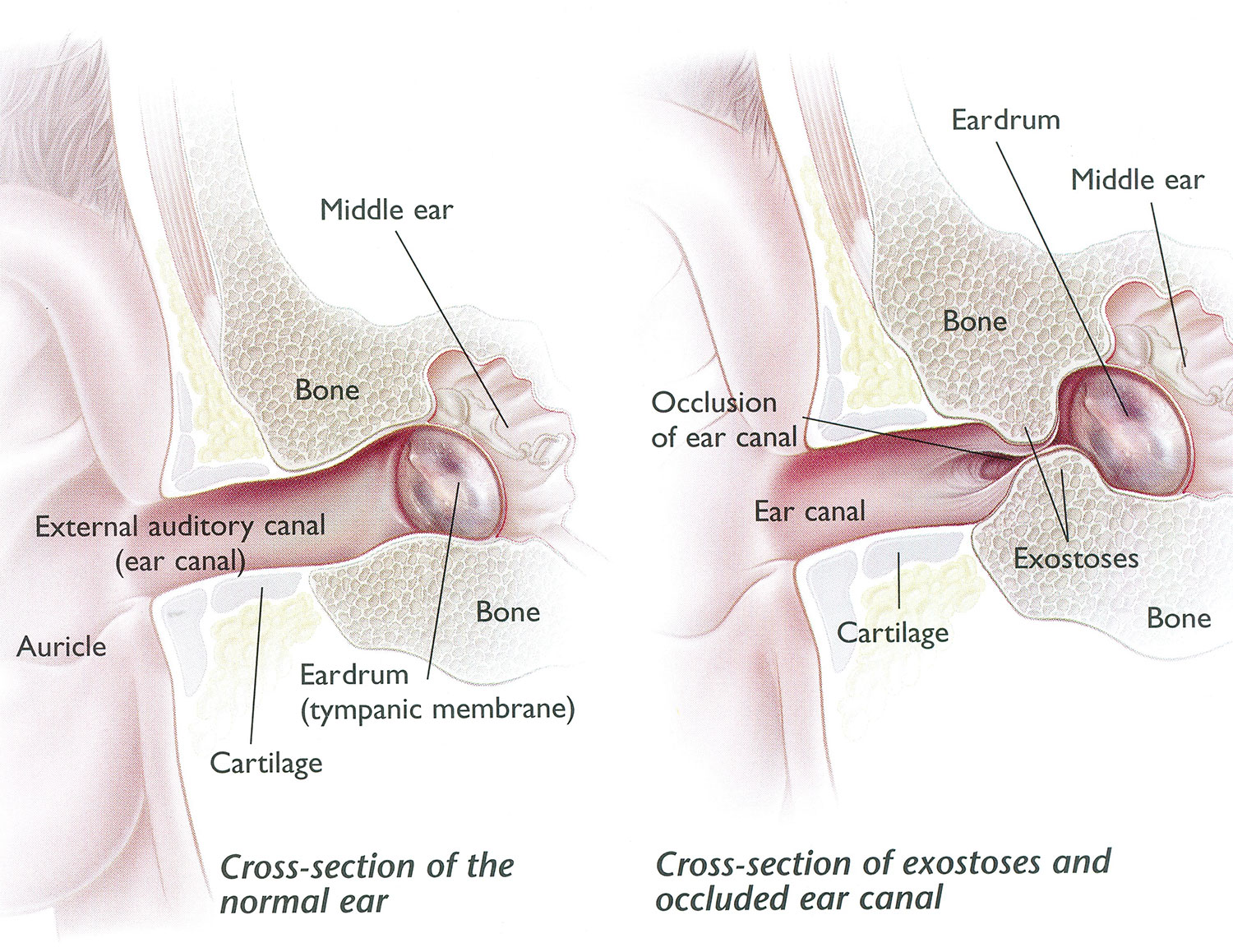Fast Facts
Take 1-2 weeks off to recover.
Contact the surgeon if you suspect an ear infection within 2 weeks before surgery. If the ear is infected on the day of surgery, the ear canal won’t heal as well.
Don’t get the ear wet until fully healed; this may take 2 months.
Don’t remove any dressings from the ear while recovering.
What is this for and is it effective?
Exposure to cold water or cold air for many hours over years causes growth of hard bony lumps in the ear canals. Water can get caught behind these lumps, causing blocked ear or infection after swimming.
Surgery aims to make the ear canal a normal shape and size again by removing the hard bony growths while preserving the delicate structures within and around the ear.



